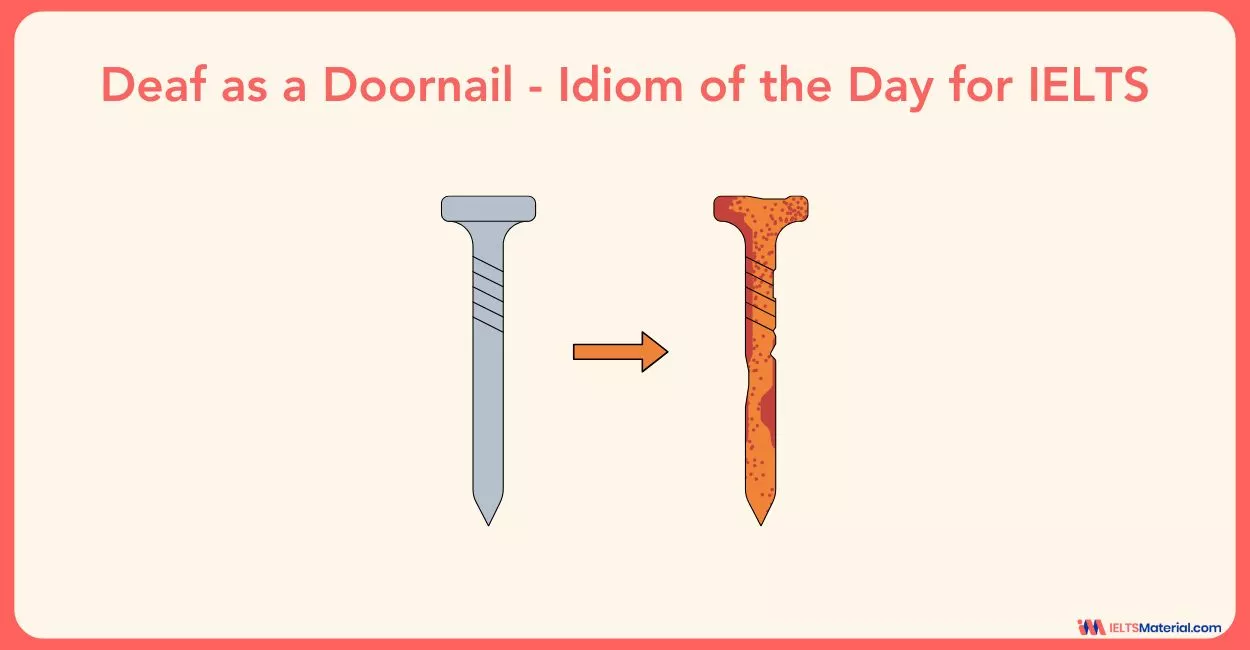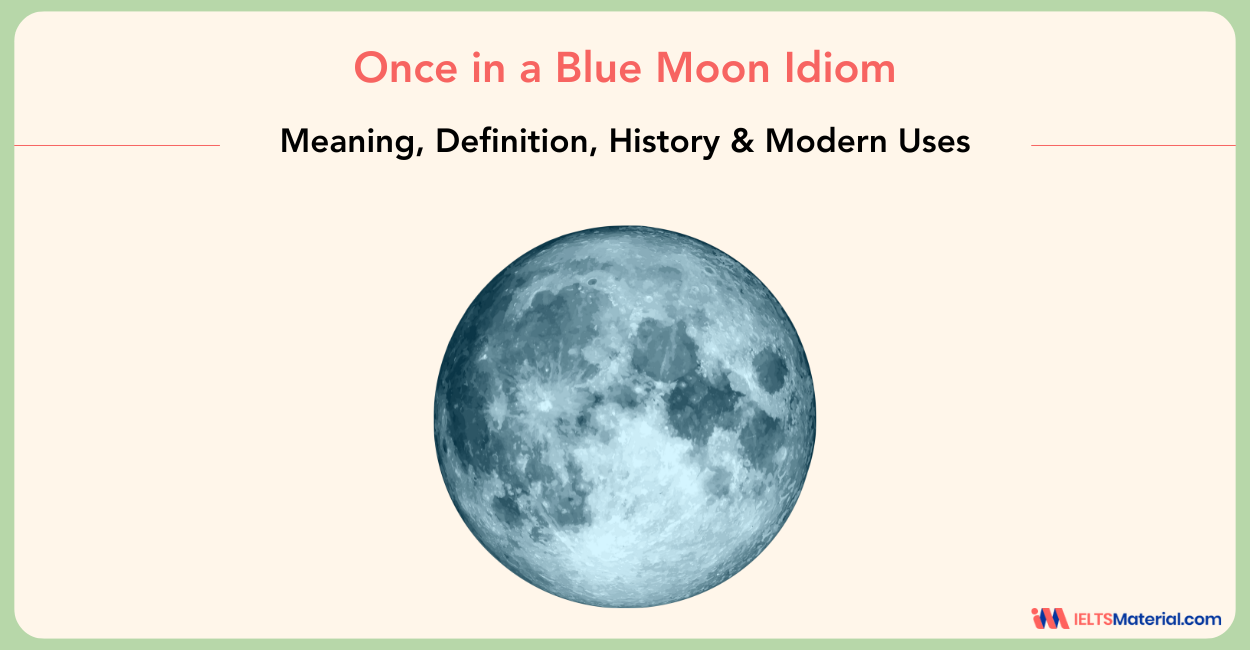Stir Up A Hornet’s Nest Idiom: Meaning, Origin, Usage & Exercises
The idiom ‘stir up a hornet’s nest’ means ‘to provoke strong anger or create trouble’. This blog explains its origin and application, with examples & vocabulary-building exercises to help you master idiomatic expression for achieving a strong band score.
Table of Contents

Limited-Time Offer : Access a FREE 10-Day IELTS Study Plan!
Imagine throwing a stone at a hornet’s nest intentionally, followed by the hornets attacking you. The idiom ‘stir up a hornet’s nest’ brings up quite a literal image into our minds, warning that some actions will provoke a fierce backlash.
This blog explores the meaning, origin, and IELTS-specific usage of the 'stir up a hornet’s nest’, a common idiom in IELTS Speaking, along with exercises to help you understand it better.
Stir Up A Hornet’s Nest Idiom: Meaning
The idiom ‘stir up a hornet’s nest’ means to do or say something that provokes strong trouble, anger, controversy, or trouble from other people, often unnecessarily.
It captures a very human dynamic: one small provocative action can unleash an angry, chaotic reaction from a group.
Origin of Stir Up A Hornet’s Nest Idiom
The behaviour of hornets (or wasps) is that if their nest is disturbed, a violent swarm reaction follows. Linguistically, this vivid image was adopted into English as a metaphor for provoking trouble.
The idea of hornets/wasps responding aggressively to disturbance is ancient; the idiom appears in modern English usage as a colorful way to describe contentious or explosive situations. Because it draws from natural observation, it became a handy metaphor in political and journalistic language to warn against provocative acts.
Stir Up A Hornet’s Nest Idiom Usage
Below are example sentences showing how and where the idiom ‘stir up a hornet’s nest’ works, and using it when describing actions that provoke strong reactions to reach the IELTS band score you are aiming for.
- When the entire family had gathered for Christmas, Uncle Henry came along and stirred up a hornet’s nest by quarrelling with Grandfather about spending so much money.
- He criticised the charity’s methods publicly and ended up stirring up a hornet’s nest of accusations and counterclaims.
- In our social-media age, a single tweet can stir up a hornet’s nest of replies, petitions, and news cycles.
- Announcing layoffs without consulting teams stirred up a hornet’s nest in the office.
- The MP’s leaked memo discussing budget cuts stirred up a hornet’s nest among local councils.
- The coach’s selection comments stirred up a hornet’s nest among fans and former players.
Book IELTS online classes to learn new vocabulary for the IELTS test!
Stir Up A Hornet’s Nest Idiom: Synonyms and Related Phrases
The table below contains a collection of common idioms list for IELTS Speaking, particularly those connected to the idiom 'stir up a hornet’s nest'.
|
Idiom/Expression |
Meaning |
Example Sentence |
|---|---|---|
|
Open a can of worms |
create a complicated problem or many new problems |
Proposing new zoning rules opened a can of worms the council hadn’t expected. |
|
Poke the bear |
provoke someone dangerous or easily angered |
Posting that sarcastic reply was like poking the bear — the CEO responded angrily. |
|
Rock the boat |
cause trouble or disturb a situation that is otherwise calm |
Raising the issue of pay differences risks rocking the boat in the union. |
|
Add fuel to the fire |
make an already bad situation worse |
His defensive statement only added fuel to the fire after the scandal broke. |
|
avoid disturbing a situation that might cause trouble |
We decided to let sleeping dogs lie and not revisit the old quarrel. |
Are you having difficulty improving your vocabulary for IELTS?
Book a FREE Demo Class!
Stir Up A Hornet’s Nest Idiom: Detailed Usage in IELTS Contexts
Using this idiom in IELTS responses can demonstrate natural, idiomatic language. However, using it appropriately in IELTS Speaking is more high-scoring than in formal essays.
Below are sample contexts using the idiom ‘stir up a hornet’s nest’ with full questions:
IELTS Speaking Part 2
- Question: Describe a situation when someone caused controversy in your community.
- Answer Excerpt: “Last year a developer published plans to build luxury flats on a beloved community garden. His flyer underestimated the historical value of the site and didn’t consult residents. The announcement stirred up a hornet’s nest — petitions, meetings, and protests followed. Residents felt betrayed; the council issued a statement and the media covered the uproar.”
IELTS Speaking Part 3
- Question: Do politicians sometimes intentionally provoke controversy?
- Sample Answer: “Yes. Some politicians deliberately stir up a hornet’s nest to energise supporters or distract from other issues. While risky, it can shift public attention or force opponents into defensive positions. However, this tactic often backfires and deepens polarisation.”
Explore our Vocabulary for IELTS to amp up your vocabulary for IELTS!
Stir Up A Hornet’s Nest Idiom: Practice Exercise
Complete the following exercises to help you learn how to properly use the idiom ‘stir up a hornet’s nest,’ so you can understand its meaning and how to apply it.
Exercise A: Choose the correct option.
1 If a journalist publishes a speculative piece that provokes angry replies, which idiom fits best?
A Let sleeping dogs lie
B Stir up a hornet’s nest
C Take it easy
D Sit tight
2 Which sentence uses the idiom incorrectly?
A His peaceful charity work stirred up a hornet’s nest.
B Her leaked memo stirred up a hornet’s nest of criticism.
C The mayor’s sudden decision stirred up a hornet’s nest among constituents.
D Posting the pictures stirred up a hornet’s nest of online outrage.
3 Which idiom is closest in meaning to ‘stir up a hornet’s nest’ when the focus is on creating chaos and anger?
A Let sleeping dogs lie
B Open a can of worms
C Rock the boat
D Stir up a hornet’s nest
4 Why might someone warn ‘Don’t stir up a hornet’s nest’ before a meeting?
A To encourage the group to be louder
B To suggest starting fights on purpose
C To advise avoiding provocative topics that will cause uproar
D To recommend changing the agenda radically
5 Which tone does the idiom usually carry?
A Neutral and formal
B Light humour with no consequence
C A warning of likely angry backlash
D A humble apology
Stir Up A Hornet’s Nest Idiom: Answer Key for Practice Exercise
1 B
2 A (peaceful work wouldn’t typically provoke a hornet’s nest)
3 D
4 C
5 C
In conclusion, ‘stir up a hornet’s nest’ is a vivid idiom for describing actions that provoke a loud, angry reactions or complicated trouble. Use it when you want to emphasize that a decision, remark, or action triggered intense backlash. In IELTS speaking, it adds natural color and demonstrates an IELTS vocabulary range. Finally, it carries a cautionary edge, a reminder that some actions invite consequences far louder than anticipated.
Useful Links:
- Safe and Sound Idiom: Meaning, Origin, Usage & Exercises
- Upset the Applecart Idiom: Meaning, Origin, Usage & Exercises
- Tough It Out Idiom: Meaning, Origin, Usage & Exercises
- Common Idioms to Improve Your IELTS Speaking Score - Topic: Trouble and Difficulty
- Mind Maps to Improve Your IELTS Vocabulary
- Top 11 IELTS Vocabulary Books
Explore IELTS Resources

Start Preparing for IELTS: Get Your 10-Day Study Plan Today!
Check out other Idioms

Haniya Yashfeen

Haniya Yashfeen
Recent Articles

Kasturika Samanta

Prity Mallick

Nehasri Ravishenbagam







Post your Comments